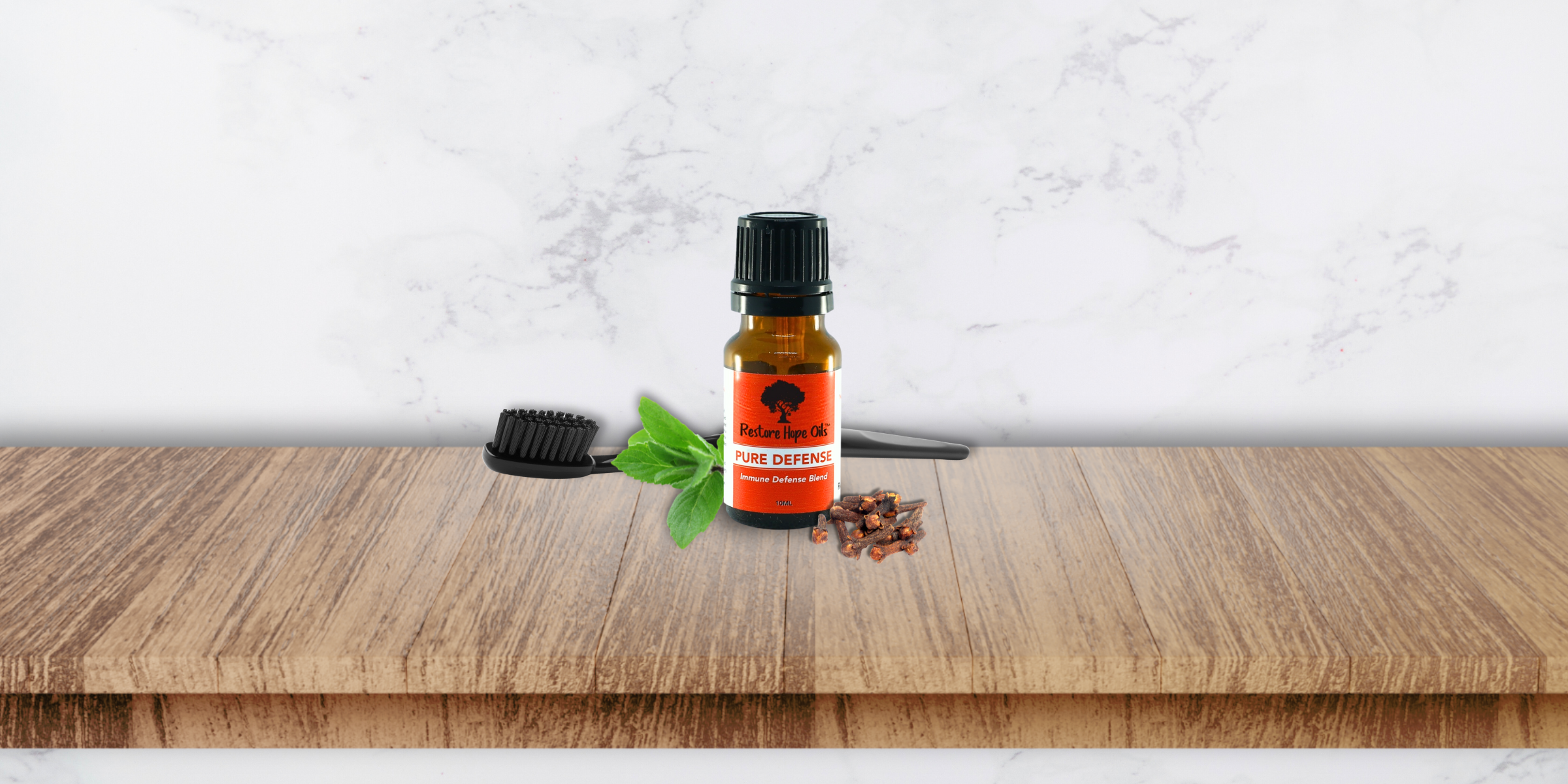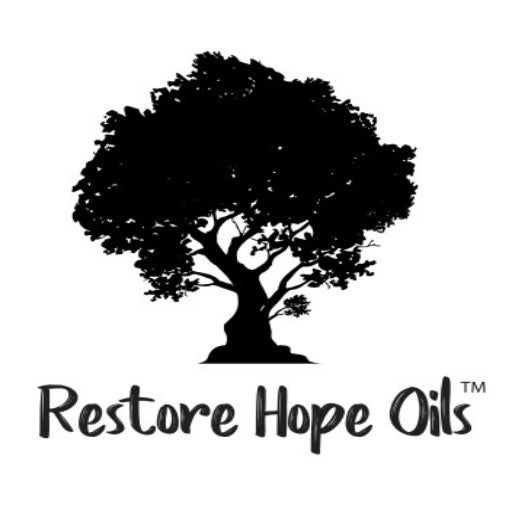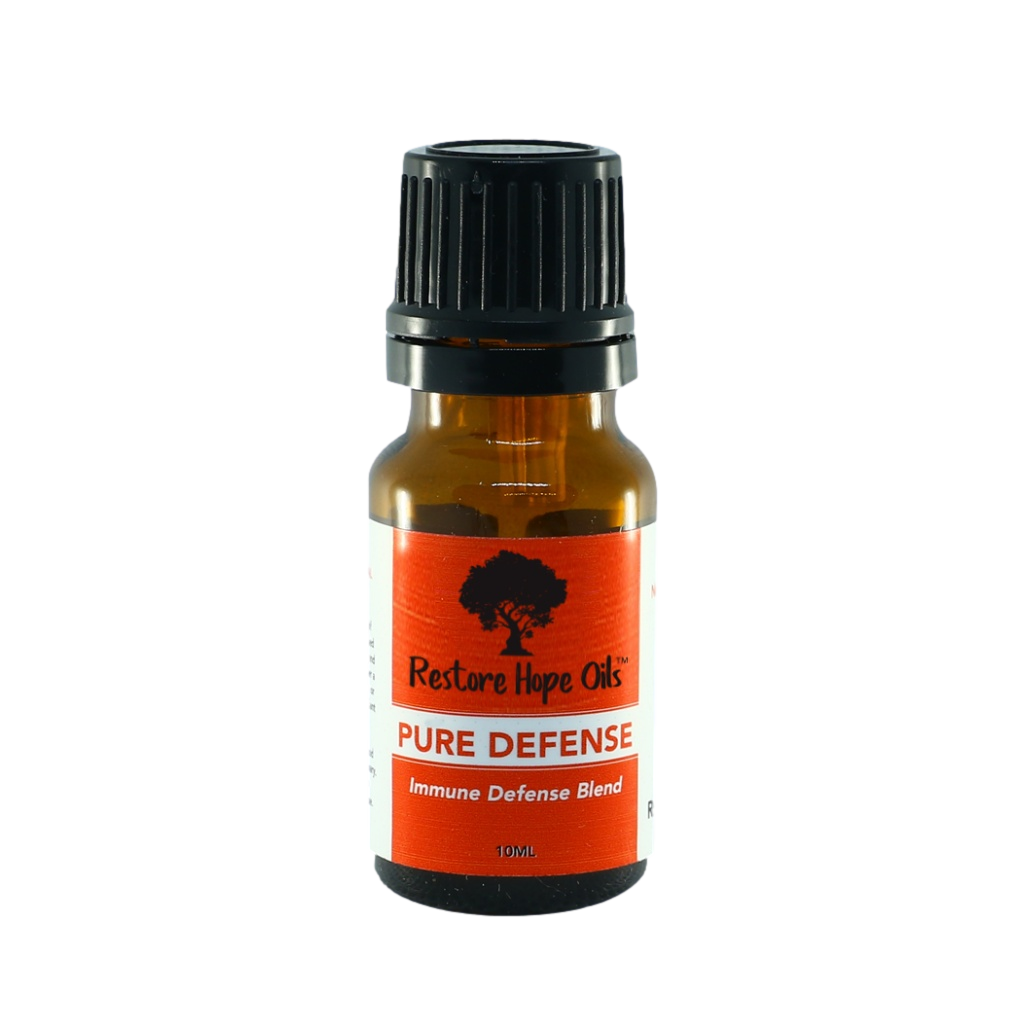
The Mouth-Body Connection: How Essential Oils Support Oral Health
We all hear about brushing and flossing, but what’s easy to miss is how much oral health is tied to the rest of the body. Researchers are learning that what happens in the mouth doesn’t stay in the mouth—and essential oils can play a role in supporting a healthy oral environment.
Why Oral Health Matters for the Whole Body
Back in 2019, researchers asked a big question: “Does disease start in the mouth, the gut, or both?”
The findings were eye-opening: strains of oral bacteria were more likely to colonize the gut than chance alone would explain. What that means is bacteria in the mouth can influence digestion, immune balance, and overall health.
Taking care of the mouth—through daily habits and holistic oral care—can ripple out to support whole-body wellness. This is why many people are now turning to natural oral health routines that include essential oils for teeth and gums.
Tea Tree: The Oral Care Powerhouse

Tea Tree essential oil is what I call a “triple threat.” It naturally helps limit bacteria, fungus, and viruses. Unlike some of the hot spice oils, Tea Tree is gentle enough for kids when diluted, yet powerful enough for adults.
When used in a natural mouthwash, Tea Tree can help freshen breath, cleanse the gums, and support an
oral environment that discourages microbial imbalance.
My Tea Tree Oral Rinse Routine
-
Add 1 drop of Tea Tree to 10–15ml of water
-
Swish and gargle for about a minute
-
Spit out (don’t swallow)
I do this once a day as maintenance, and twice daily if my immune system feels under pressure.
Oil Pulling with Essential Oils
Oil pulling—swishing a carrier oil like coconut or sesame in the mouth—has been practiced for centuries. Adding just a drop of essential oil to your carrier oil can give your oral care routine an extra boost.
Some of my favorites:
-
Tea Tree – for its cleansing and freshening properties
-
Clove – traditionally used for tooth and gum support
-
Rosemary – invigorating and purifying
-
Pure Defense blend – combines Tangerine, Black Pepper, Peppermint, Rosemary, Nutmeg, Clove, and Cinnamon Bark to support immune and oral health together
Remember, with oils in the mouth, less is more. Start small and see how your body responds.
Clove: The “Dentist’s Oil”
Clove is sometimes called the “dentist’s oil”—and for good reason. One of its natural compounds, Eugenol, is still used in dental offices today.
Here are three simple ways I’ve used Clove for oral support:
-
Tooth discomfort (adults only): apply a tiny diluted amount on the area for temporary calming relief
-
Gargle: add 1 drop to 2 teaspoons of water, swish, then spit out—great for cleansing the mouth
-
Sore throat support: gargling with diluted Clove may feel soothing
Clove has long been used in natural remedies for toothache, but it’s also a powerful ally for overall gum health support.
Pure Defense: Whole-Mouth, Whole-Body Support
When I first created Pure Defense, the goal was to bring together oils that protect the mouth and immune system at the same time. The blend includes:
-
Tangerine – high in antioxidants, uplifting, and supportive of the body’s natural cleansing
-
Black Pepper – known for its antibacterial strength and circulatory support
-
Peppermint – cooling, refreshing, and supportive of fresh breath
-
Rosemary – invigorating and cleansing for mouth and lungs
-
Nutmeg – stimulates digestion and adds a warming balance
-
Clove & Cinnamon Bark – powerful protectors for teeth, gums, and immune defense
When used as a gargle (1 drop diluted in water and spit out), Pure Defense acts as a natural mouthwash to freshen breath and help support gum health. But it doesn’t stop there—it’s also my go-to blend for seasonal immune support.
Peppermint and Spearmint for Fresh Breath
Let’s not forget the oils everyone already associates with toothpaste and natural mouthwash—Peppermint and Spearmint.
-
Peppermint is cooling and refreshing. Just a drop in water (spit out, don’t swallow) can be used as a quick natural mouth rinse.
-
Spearmint is softer, a little sweeter, and a great option for kids or those sensitive to stronger mints.
Both oils help fight bad breath naturally and leave the mouth feeling fresh and clean.
Building a Natural Oral Care Routine
Essential oils don’t replace brushing and flossing—they complement them. Here’s a safe, simple way to build a natural dental care routine at home:
-
Brush and floss as usual: Stick with your normal dental routine and check with your dentist about what’s best for your teeth. Essential oils are supportive, but they don’t replace regular cleanings.
-
Rinse with Tea Tree or Pure Defense mouthwash: Add just 1 drop of oil to 10–15ml (about 1 tablespoon) of water. Swish and gargle for 30–60 seconds, then spit out. Do not swallow. This is a natural way to freshen breath and support gum health.
-
Oil pulling (2–3 times per week): Use 1 tablespoon of carrier oil such as coconut or sesame. If desired, add 1 drop of Tea Tree, Clove, Rosemary, or Pure Defense blend. Swish gently for 10–15 minutes, then spit into the trash (not the sink—oils can clog drains). Never swallow the oil. Start with less time (5 minutes) if you are new to oil pulling, and work up slowly.
-
Support gums with a diluted massage: Mix 1 drop of Clove, Rosemary, or Pure Defense in 1 teaspoon of carrier oil. Using a clean finger or cotton swab, gently apply along the gum line. Spit out any excess oil afterward. This supports gum comfort without being harsh.
-
Lifestyle support: Minimize excess sugar, processed foods, and acidic drinks. These can disrupt the oral microbiome and weaken enamel. Whole foods, hydration, and sleep are just as important for gum health and fresh breath as any oil.
This kind of balanced, holistic oral care routine helps keep the mouth fresh and comfortable while also supporting overall wellness.
A Conversation with My Dentist
Not long ago, my dentist and I had this exchange:
Dentist: “So, what do you do for a living?”
Me: “I combine natural compounds like essential oils to support balance in the body and mind.”
Dentist: “Interesting. Like what?”
Me: “You’ve used Eugenol before, right?”
Dentist: “Yes, it’s in numbing agents we use.”
Me: “That’s Clove Bud essential oil.”
I love seeing how essential oils and modern dentistry actually overlap—it shows they can work hand in hand.
Keep smiling and essential oil on,
![]()
Frequently Asked Questions
Q: Can I use essential oils instead of toothpaste?
A: No. Essential oils support oral health, but they don't replace daily brushing or cleanings. Think of them as a natural addition, not a substitute.
Q: Are essential oils safe for kids?
A: With proper dilution, gentle oils like Tea Tree or Spearmint can be used in small amounts. Always supervise, and never allow kids to swallow oils.
Q: Which essential oils are best for gum health?
A: Tea Tree, Clove, Rosemary, and blends like Pure Defense are all supportive when diluted and used properly.
Quick note, friends: Essential oils are meant to support your lifestyle, not replace your dentist. The info here is for education only and is not intended to diagnose, treat, cure, or prevent any disease. Mentions of Eugenol in dentistry are just for context—they don’t mean Clove Bud essential oil is the same as professional dental products or procedures. Always dilute oils properly, don’t swallow them, and talk with your healthcare or dental provider before starting any oral care routine with essential oils.

